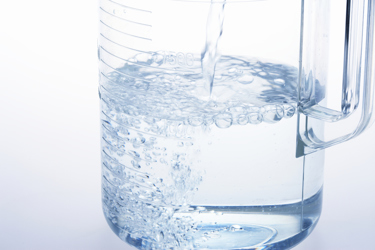New Jersey Adopts Stricter PFAS Limits For Drinking Water


One of the most highly populated states in the country will be adopting stricter standards to limit the presence of a particularly pervasive class of drinking water contaminant.
“New Jersey formally adopted some of the most stringent standards in the nation for two chemicals found in drinking water across the state that have been linked to cancer and other ailments,” according to NorthJersey.com. “The move will require all operators of public water systems to begin testing for the chemicals PFOA and PFOS by April 1, 2021.”
PFOA and PFOS are two primary polyfluoroalkyl substances (PFAS), compounds that are found in teflon, firefighting foam, and other industrial products. They have been nicknamed “forever chemicals” because of the lingering presence and pervasive health effects they can cause following consumption through drinking water.
While the U.S. EPA does have a health advisory for PFOA and PFOS at 70 parts per trillion, many do not feel this standard goes far enough and state regulators have begun establishing their own standards.
New Jersey’s new standard limits the presence of PFOA to 14 ppt and PFOS to 13 ppt. If drinking water does not meet these standards, utility operators will have to install additional treatment systems and/or utilize different source water.
Though PFAS contamination is an issue for communities across the country, New Jersey has been particularly hard hit because of the presence of industrial operations that leeched the compounds into its source water, including 3M, DuPont, DowDuPont, Chemours, and Solvay.
“Nearly one in five New Jersey residents have received tap water that contains at least trace amounts of one of these chemicals,” NorthJersey.com reported. “The [stricter regulation] comes after Gov. Phil Murphy’s administration last year ordered five companies responsible for widespread pollution of drinking water systems with PFAS to spend millions of dollars to assess the extent of contamination and eventually clean up the pollution.”
Read More: New Jersey Industries To Pay Millions For PFAS Contamination
Though PFAS have been identified as a problem in New Jersey, and utilities have already been acting to curb them, the new standards are designed to formalize and standardize these efforts.
“With the adoption of these standards, New Jersey continues to lead the nation in protecting public health and the environment from these chemicals, which have been detected at varying levels across the state,” New Jersey Department of Environmental Protection Commissioner Catherine R. McCabe said, according to The Press of Atlantic City. “By adopting formal standards, we are putting in place a clear regulatory framework that will ensure consistency in monitoring, public notification and treatment across the state.”
To read more about the efforts underway to reduce exposure to PFAS in drinking water, visit Water Online’s Drinking Water Contaminant Removal Solutions Center.
